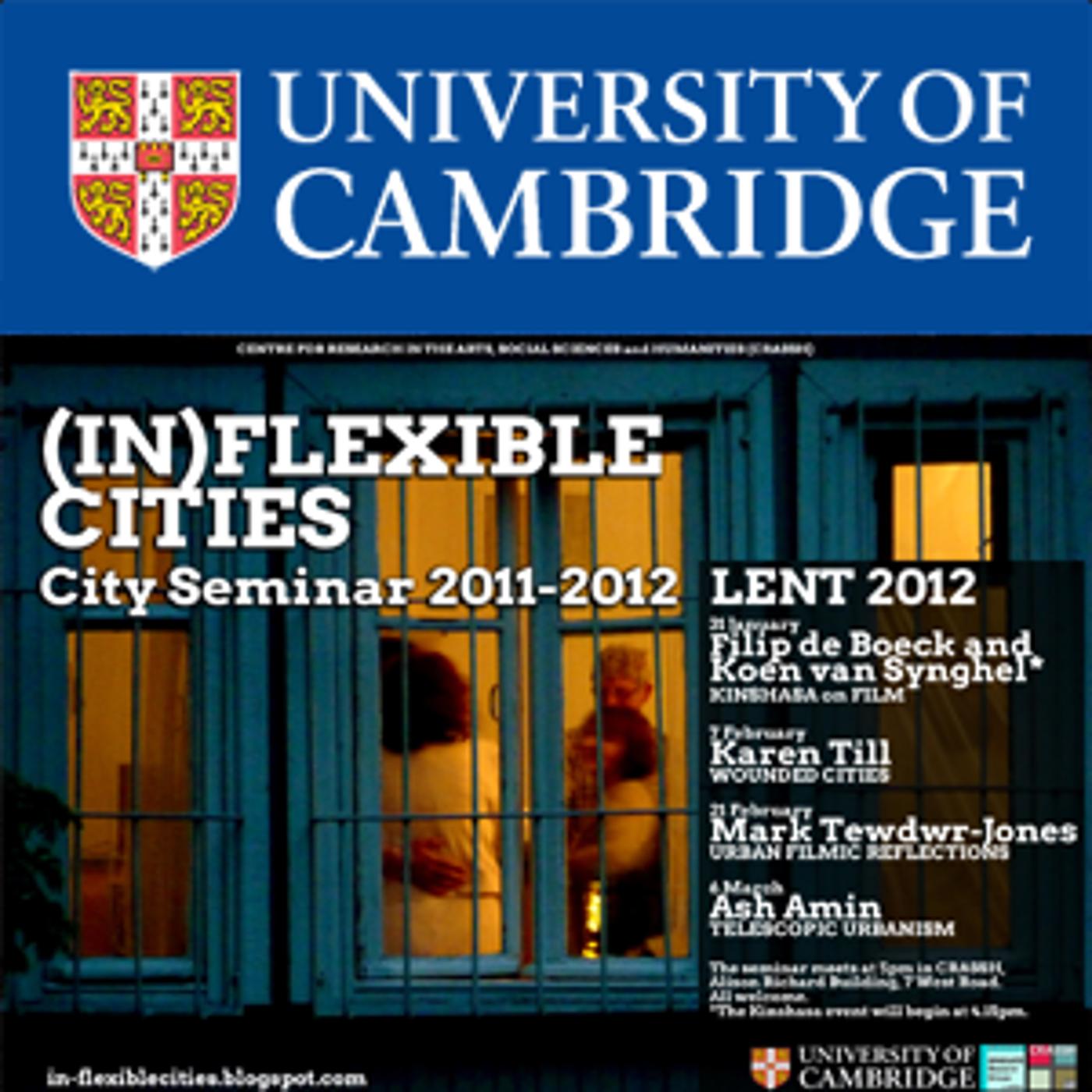City Seminar - 28 January 2014 - Globalisation along the Back Roads
Update: 2014-01-30
Description
Caroline Knowles (Goldsmiths)
This paper challenges dominant theories of globalisation by confronting them with the insights from a research project that followed a common, travelling, object through the translocal terrains of its biography. Beginning in the oil wells of the Middle East, and ending on a landfill site on the outskirts of Addis Ababa, the trail created by a pair of flip-flop sandals passes through five countries. Presenting one or two vignettes to illustrate parts of the trail, I suggest that the dominant notions of globalisation, as a robust network of connections through the landing places of network value, unravels when confronted with the routes created by humbler objects and the lives and landscapes they connect. Tentatively labelling this vantage point ‘globalisation along the back roads’, I suggest that globalisation is not what it seems. Through the lens of an everyday plastic object, globalisation appears, instead, to be a highly mobile, fragile, unstable, inchoate, shifting matrix of journeys, generating multiple forms of precarity in the lives and landscapes it connects.
This paper challenges dominant theories of globalisation by confronting them with the insights from a research project that followed a common, travelling, object through the translocal terrains of its biography. Beginning in the oil wells of the Middle East, and ending on a landfill site on the outskirts of Addis Ababa, the trail created by a pair of flip-flop sandals passes through five countries. Presenting one or two vignettes to illustrate parts of the trail, I suggest that the dominant notions of globalisation, as a robust network of connections through the landing places of network value, unravels when confronted with the routes created by humbler objects and the lives and landscapes they connect. Tentatively labelling this vantage point ‘globalisation along the back roads’, I suggest that globalisation is not what it seems. Through the lens of an everyday plastic object, globalisation appears, instead, to be a highly mobile, fragile, unstable, inchoate, shifting matrix of journeys, generating multiple forms of precarity in the lives and landscapes it connects.
Comments
Top Podcasts
The Best New Comedy Podcast Right Now – June 2024The Best News Podcast Right Now – June 2024The Best New Business Podcast Right Now – June 2024The Best New Sports Podcast Right Now – June 2024The Best New True Crime Podcast Right Now – June 2024The Best New Joe Rogan Experience Podcast Right Now – June 20The Best New Dan Bongino Show Podcast Right Now – June 20The Best New Mark Levin Podcast – June 2024
In Channel





